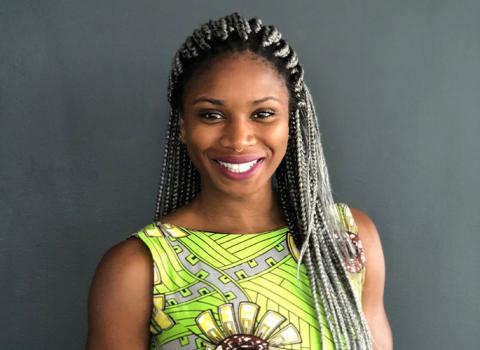Bénédicte Bicaba
Co-founder and President, Botiminto & Institutional Partnerships Associate, Muso
UW Majors: French and Anthropology
Tell us a bit about your job (e.g. what kinds of things you’re working on, what types of problems you solve day to day, etc.)?
I work with the community to uplift their collective and individual expertise in lived experiences to reshape the systems that have historically marginalized them. As a co-founder of our non-governmental organization (NGO), Botiminto, I work with a team in the USA and in Burkina Faso to support sixth-grade students on their academic journeys. From refining our yearly Bootcamp program to cultivating strategic partnerships with community leaders such as the Parent Student Associations and the village’s Chief, we aim to encourage the community to seek education as the way out of poverty. At Muso, a global health international NGO, I am embedded in the Business Development team. There, I mobilize institutional funders around a shared belief that health can’t wait. I am responsible for driving internal project management, proposal development, and submitting deliverables to partnered global and Mali-based institutional donors.
How do you think your humanities education has influenced/advanced your career path?
Centering community grounds my work at Botiminto and Muso, and I firmly believe that my academic experiences have given me the foundation needed to competently and justly serve my community. Both at Muso and Botiminto, my ability to speak the national languages of Burkina Faso and Mali allows me to be a cultural translator, capturing and sharing the needs of those communities. My Humanities degree in French has instilled the importance of language; its power on people and communities. Languages carry so much more than the written word. Language is culture, history, way of life, collective and individual expression, adapting to its time and should be handled with care as this can also be weaponized against individuals and communities. My French degree also emphasized the power of framing and translation to ensure that ideas are communicated in a manner that the audience will effectively receive them. By endeavoring to understand cultures, contexts, beliefs, and community priorities, we become better stewards of the communities we serve as we transform systems for the betterment of all.
Want to read more? Check out the profiles on the Alumni Spotlights page for more information on what our humanities majors are up to.
